"Apocalypse of the Imagination: How to Become a Human Emoji," Chapter 1 of WHY LITERATURE STILL MATTERS.
Augmented Footnotes for Chapter 1
Why Literature Still Matters will be released later this week!
It’s a book about reading literature, of course, but as I was writing it, I kept imagining my readers coming across one of the references I make within (to a piece of music or to a painting or a sculpture or a poem), putting their fingers in the book, and then going off to look or listen for themselves.
And so, in order to help my readers flesh out my argument, I am creating this set of hyperlinked references or, if you prefer, “augmented footnotes.”
Although I’m employing a modern technology (the internet), I’m bringing into existence a very real medieval aspiration.
Very often in a hand-written medieval manuscript, you’ll find marginal notes or interlinear glosses; sometimes, you find diagrams or large, colorful decorated capital letters; other times, you find swirling vines and branches with leaves, seemingly “sprouting” from the page and growing into the margins; sometimes, you find neumes (those little musical notations of chant: see below); and sometimes we get elaborately colored illuminations.
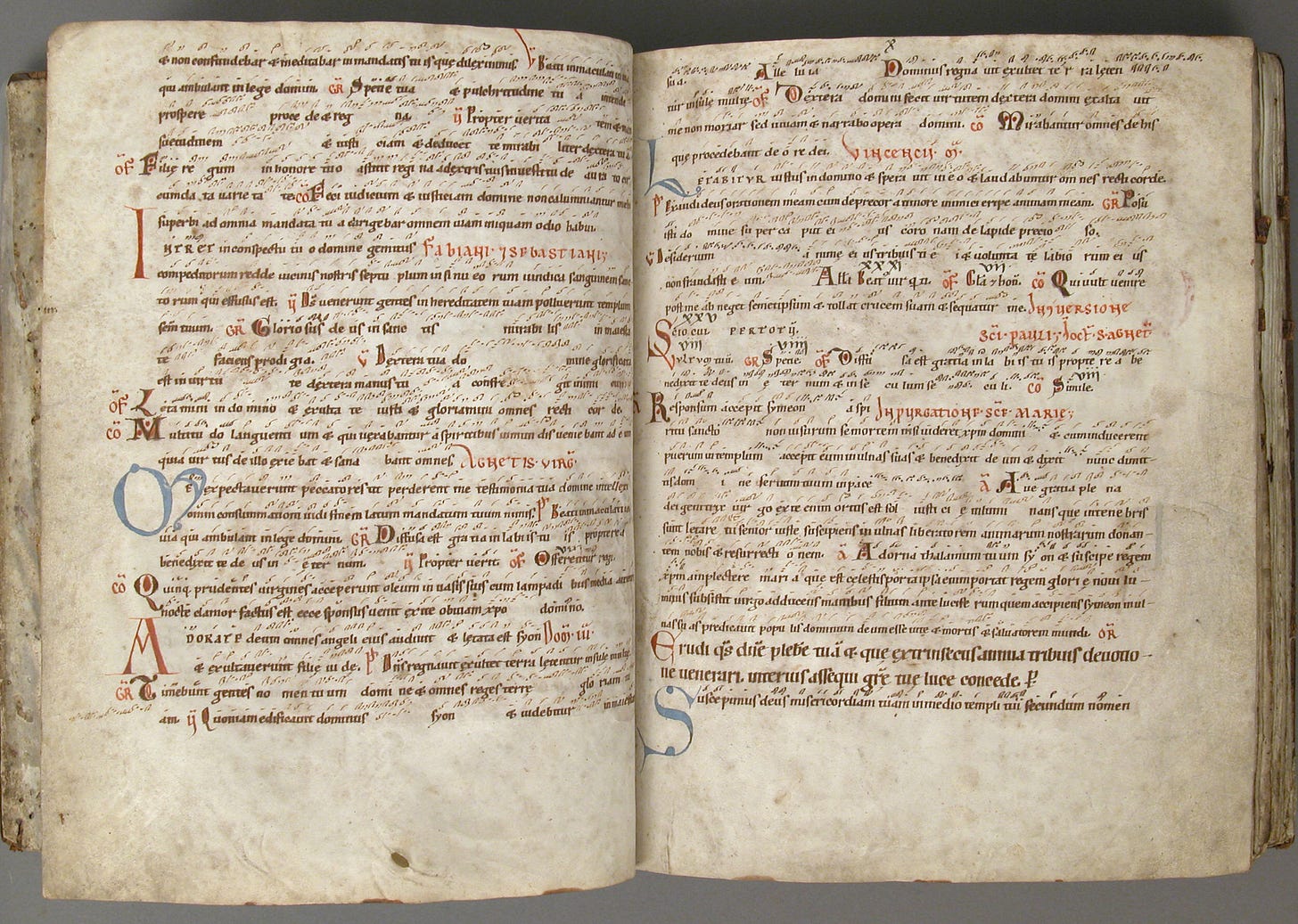
It’s almost as if words during the medieval period—very often, the words of Scripture—were meant to flower and bloom, to burst into life, or undergo a metamorphosis into song.
The lines of black are the furrows of a plowed field, in which ideas have been sown, but the goal is that these ideas turn into the fruit and flowers of convicted sentiments and the strong affections of the heart, stored away within the memory. And this is already happening, visually, between the lines of the text in the manuscripts that have come down to us.
In a similar way, within this series of posts, I’m going to provide my own “hyper-glosses” and “augmented decorated capitals” and “virtual-illuminations” and “super-neumes” for Why Literature Still Matters. This is an adventure in post-modern medievalism.
Here we go….
Chapter 1: Apocalypse of the Imagination: How to Become a Human Emoji
My chapter, “Apocalypse of the Imagination,” begins like this:
“A couple of years ago I started reading, with my college students, the open letter that Mark Zuckerberg and Priscilla Chan addressed to their infant daughter in 2015. In that letter, the couple made the dazzling claim that they had plans, over the course of their lives, to give away 99% of their Facebook shares to combat disease and inequality. If they really do this, they will become the greatest philanthropists in human history. And so it has always been a little puzzling to me that the letter invokes such a tepid, guarded response from my students when I read it aloud to them in class. They know that Zuckerberg and Chan are saying ‘The Right Things,’ but for some reason they don’t feel moved by what they hear.”
Why is that?
To think through this, I do a literary analysis—and what fun I had in doing it!—of Mark Zuckerberg’s open letter to his daughter, Max. The results were fascinating.
And alarming.
I compare Zuckerberg’s sentiments with those found in Yeats’s “A Prayer for My Daughter”; as well as, Yeats’s lovely, “Lake Isle of Innisfree.”
If you’re an American, you might be wondering: “wait, what’s a linnet?”
Now imagine a tree full of them…
This is Yeats’s favorite metaphor for a full human heart.
That’s your hint: what is Zuckerberg’s favorite metaphor for human flourishing?
These two texts—Yeats and Zuckerberg—act as symbols: one for the modern, mechanized world; the other for a “cosmos.”
One of the reasons I admire Yeats is that he uses “all the notes on the piano keyboard.” When I wrote that metaphor , I was listening to this interpretation of Liszt’s “Les jeaux d’eau à la Villa d’Este.”
Hélène Grimaud is my second favorite pianist.
My first favorite is Elena Deslongschamps.
I argue that Yeats did for poetry what Constable did for paint, and Mendelssohn (in his “Overture to the Hebrides”) and Vaughn Williams (in “Lark Ascending”) did for music. If you want to prove this for yourself, listen to the Vaughn Williams (linked above) while looking at the Constable, below. These are “symbols,” in the full (“Romantic”) sense I give to that term.
I could have mentioned Caspar David Friedrich, too:
As I put it in Why Literature Still Matters: “[All of these artists] aimed to create an art that got at the complexity and range of the natural world, but in a way that whispers to some deeper quality of soul.”
In Modern Times these symbols have completely evaporated.
And no one even remembers what it is that they have lost.
Even if Chaplin’s character feels something’s off, he cannot articulate it.
It’s a kind of non-funny comedy (which is my favorite kind, of course).
Listen to the “Overture” of machine noises from John Adams's Doctor Atomic while looking at the image, above. You’ll get the point. There’s a whole classical sub-genre of making music from industrial sounds.
I suggest later in “The Apocalypse of the Imagination” that this “mechanization” has got into our popular music, too.
I analyze Rihanna and OneRepublic from this point of view.
Come on! Can’t you find those two by yourself? Ok. Fine. But only if you subscribe first.
Alright. Here they are: “This is what you came for,” I guess (while we’re at it: please help me get Rihanna over 3 billion views: we’ve got 200 million more to go. Let’s get to work! The machine needs us).
And if all that makes you feel depressed, go get yourself some “Sunshine” vibes.
I conclude the chapter comparing Zuckerberg’s “philosophy” to John Adams’s “Short Ride in a Fast Machine” and the “sculpture” of Jeff Koons.
Koons boasts that he creates art that is so positive that no one can disagree with it.
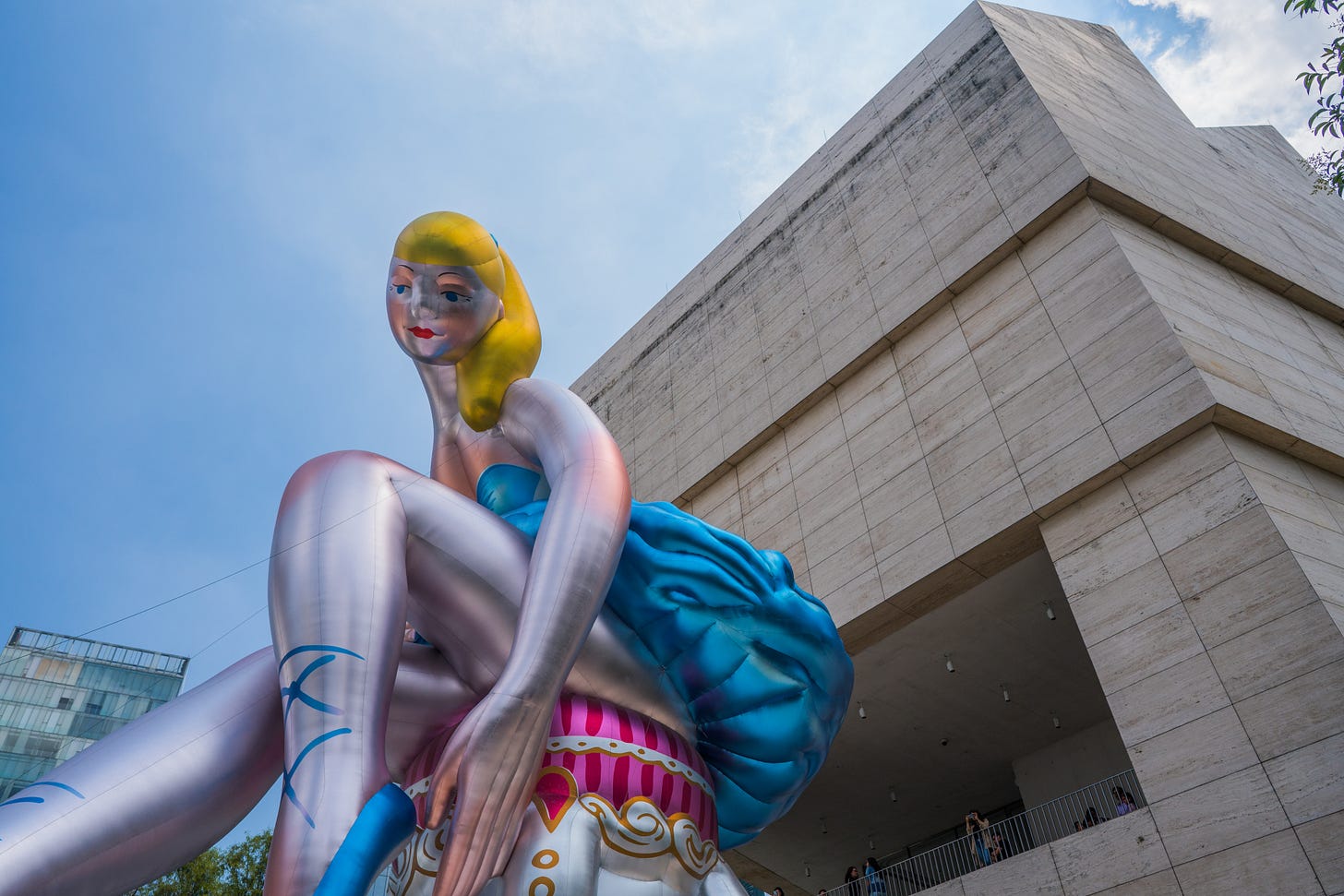
I conclude the chapter by drawing from Byung-Chul Han’s Saving Beauty. I also wonder: if all this gets into your blood and into your brain, does it affect how you read literature?
Chapter Two: How to Die in Sardinia: The Landscape of Literature


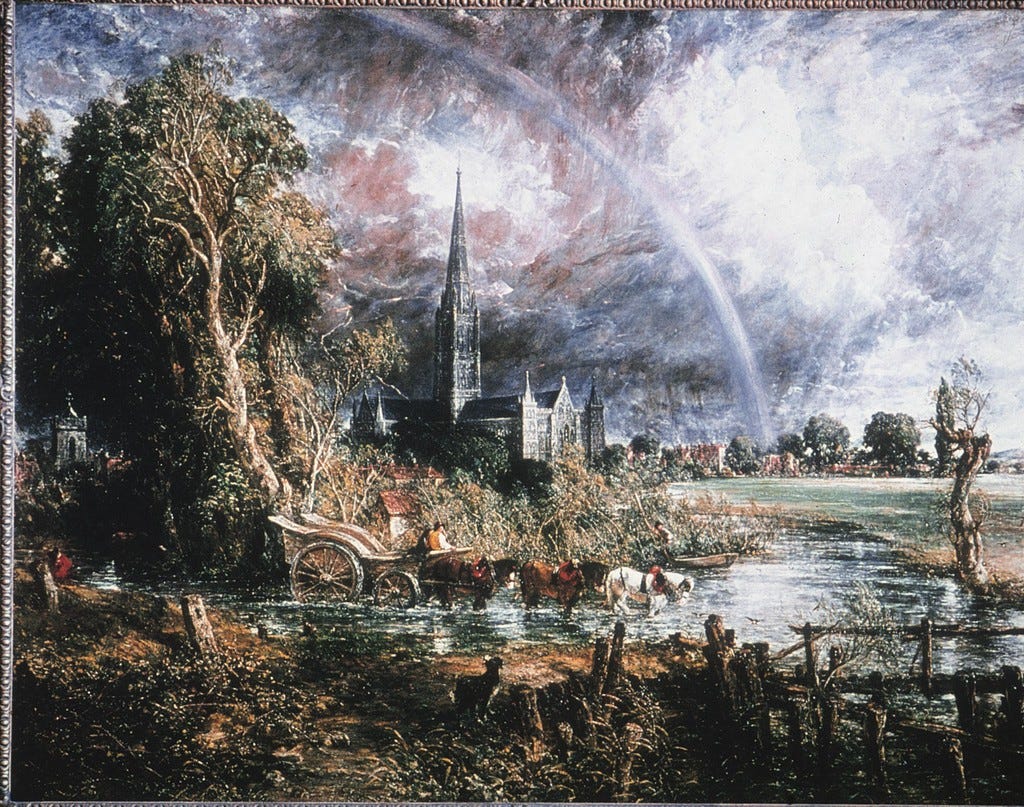
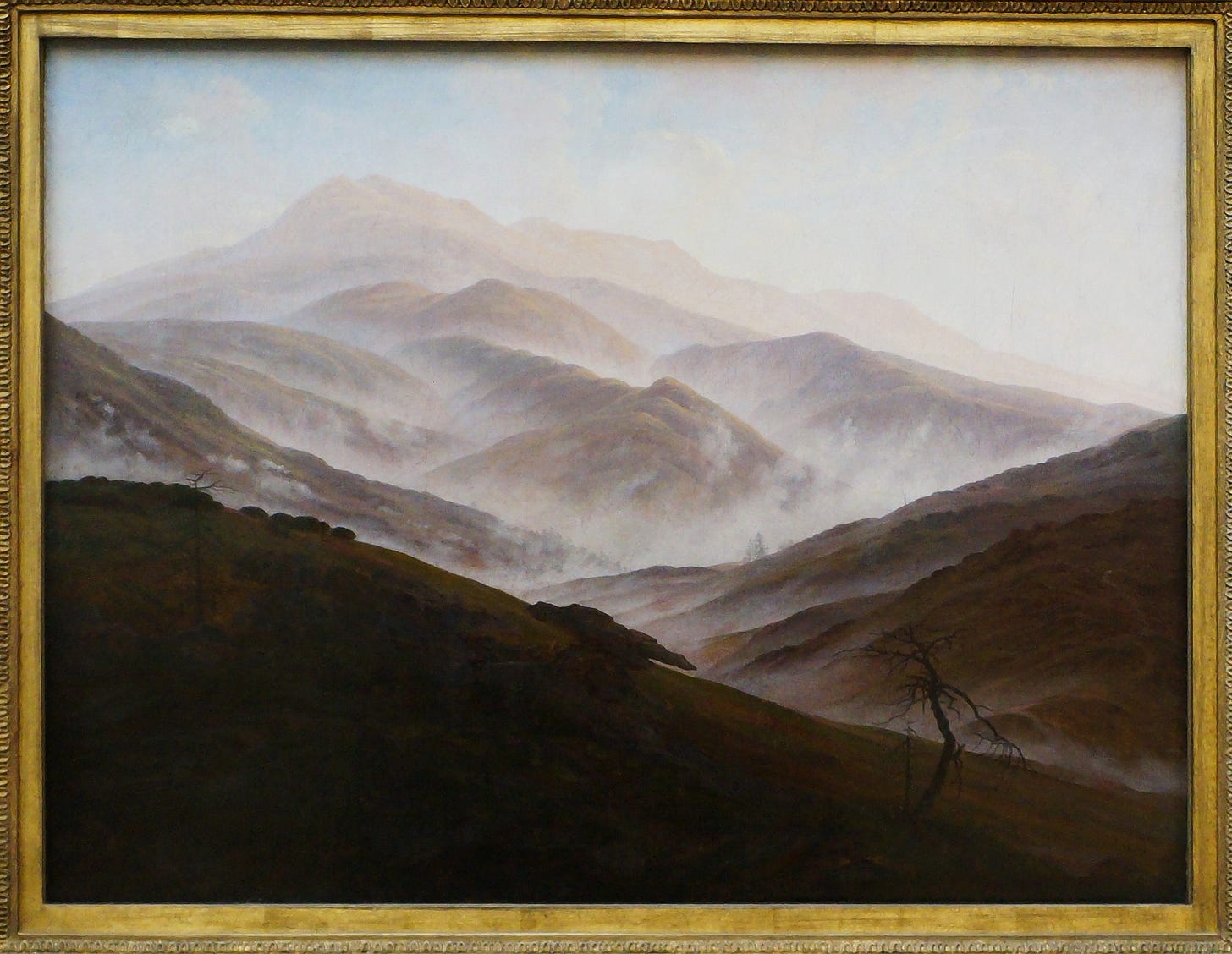

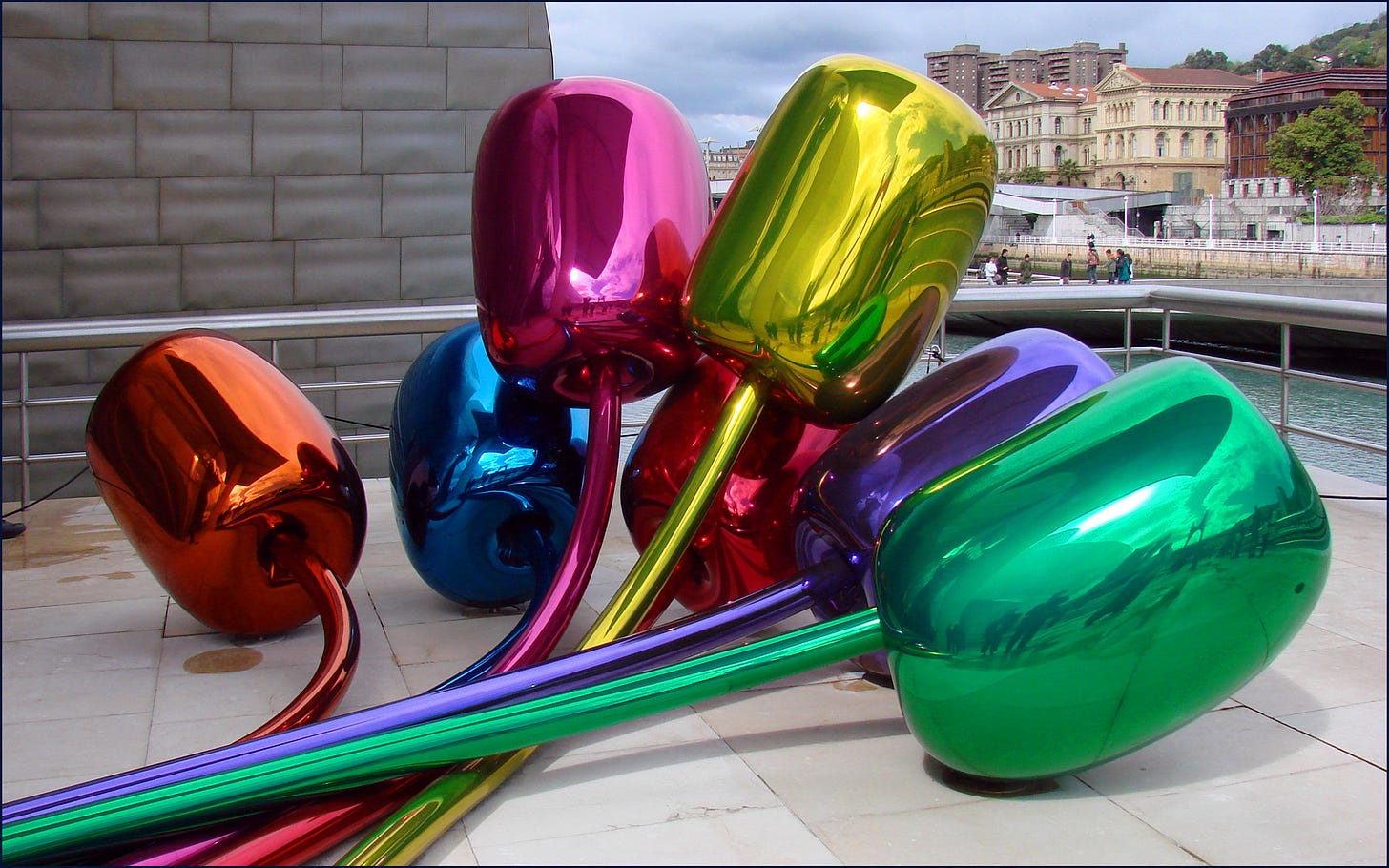
I write about this in the book: but... it's the maxima and minima of applied mathematical functions. Fun, eh?
Looking forward to your book reaching Australia!